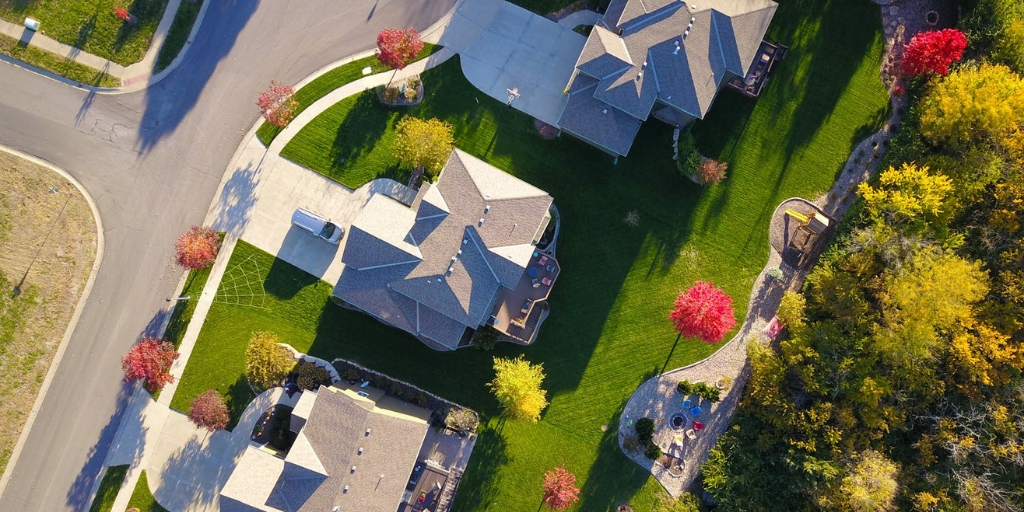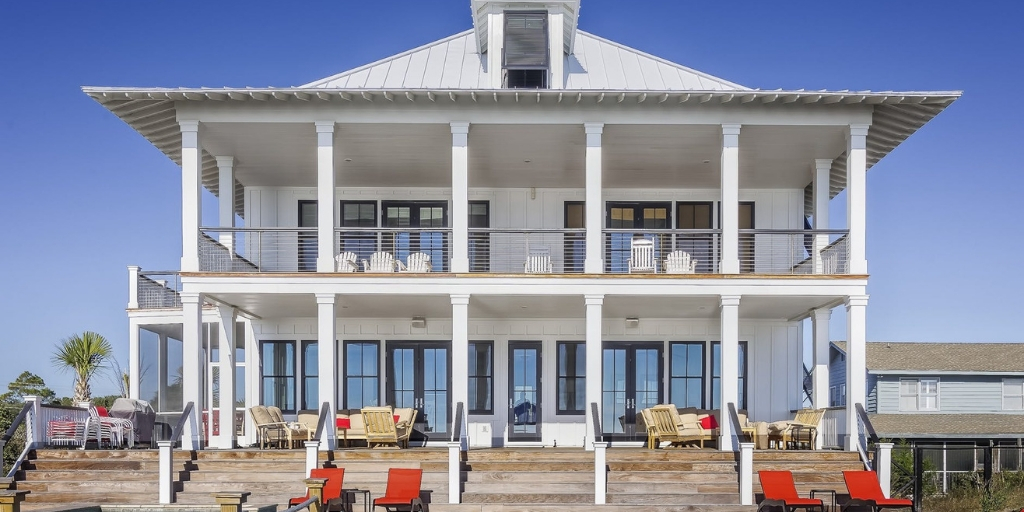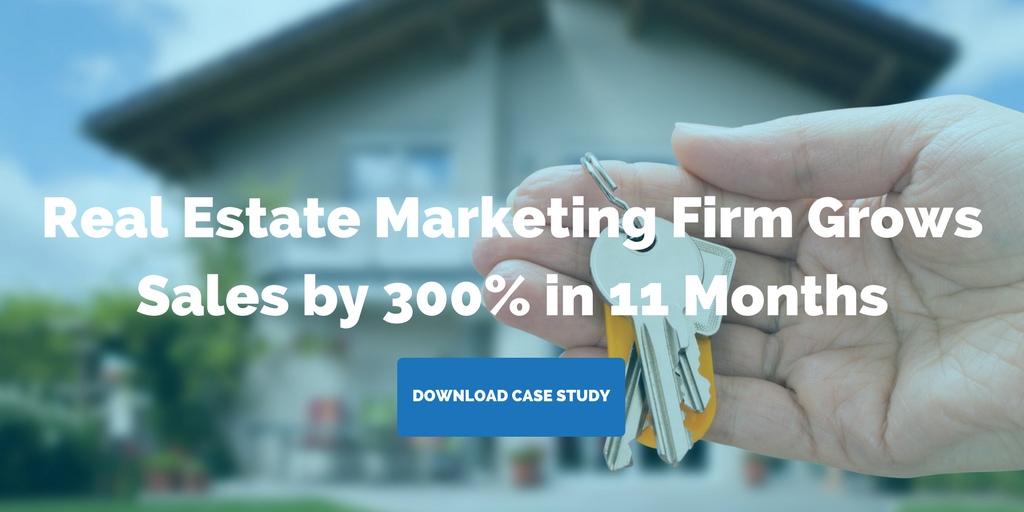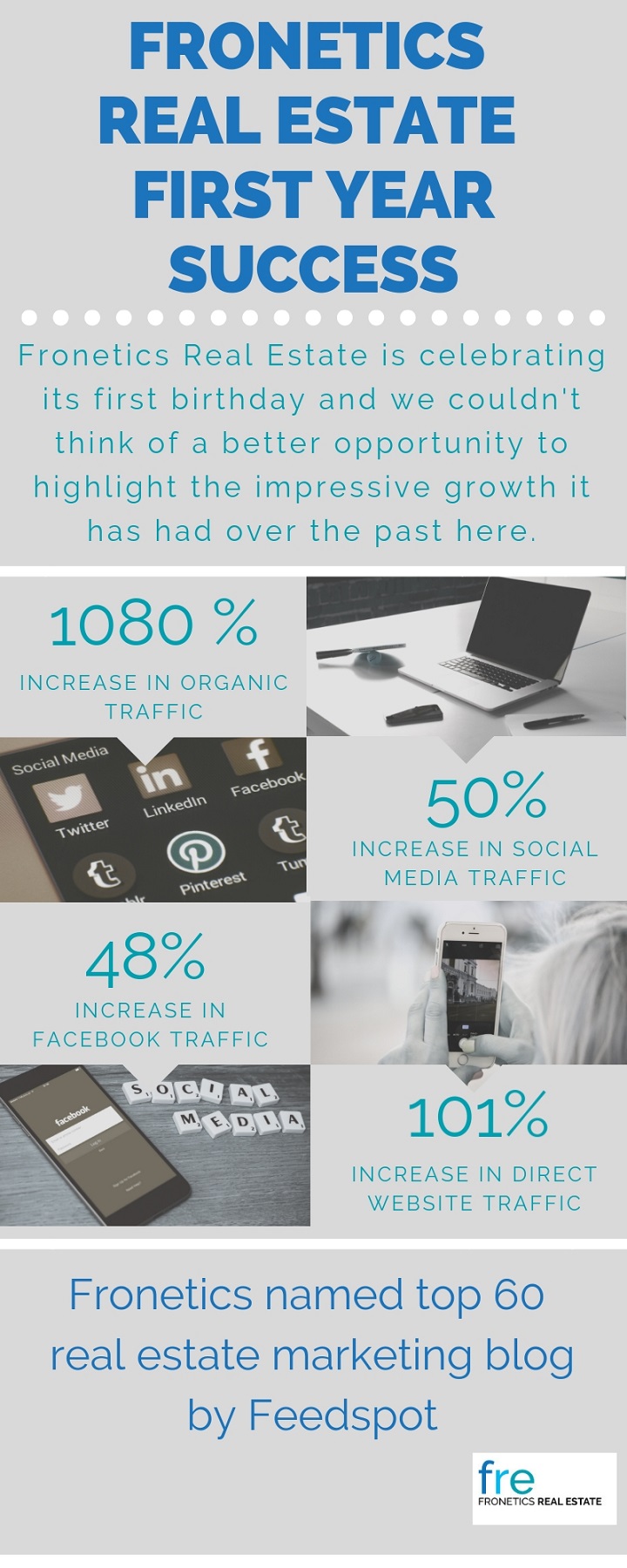Posts Tagged "website traffic"

Top 5 Real Estate Marketing Tactics
Here are 5 real estate marketing tactics to increase website traffic, user engagement and leads.
As a real estate marketer, you’re always looking for ways to find more clients and grow your business. You already understand the need for a marketing strategy. But sometimes it’s challenging to identify the most effective marketing tactics to reach your audience.
The following are 5 real estate marketing tactics that are especially useful for engaging with prospects for luxury development projects.
1. Use AR and VR
Images are central to all types of digital marketing but they’re absolutely crucial when it comes to real estate. If you want to showcase the best of your luxury properties, it’s essential to display compelling, high-quality photos. You can make your imagery stand out even more by using the latest technology such as AR and VR.
It’s now possible to give prospects a virtual tour of your properties using virtual reality (VR) or augmented reality (AR). VentureBeat asks if such technology will mean the end of open houses. There’s still a lot to be said for giving people live tours of properties, of course. But VR and AR can give non-local prospects (or busy nearby ones) a great introduction to your luxury properties. Unless you’re experienced with photography, hiring a skilled real estate photographer can be a worthwhile investment.
2. Add Distinctive Features to Your Properties
Customers in the luxury real estate market like to see unique amenities that set a property apart from others. Quality photos are, for obvious reasons, the foundation of real estate marketing. As already noted, you can increase engagement by using creative and high-tech methods such as VR and AR. It also helps to have interesting and unique items to display in your photos (as well as videos).
Images of eye-catching details, decor, and amenities make your property memorable. Wellness amenities, for example, are quite popular in any type of luxury development. This includes yoga studios, meditation areas, tranquility-inducing artwork, and comfortable seating areas, off of which can be featured in your marketing. You can add many such elements without going to great trouble or expense. Repurpose existing spaces for a quick shot at little cost.
3. Use Postcards for Website Traffic
Real estate professionals generally focus on digital marketing today — and for good reason. Digital ads, your website, social media, and email are the most direct and economical ways to reach your audience. This doesn’t mean you should completely ignore traditional, offline methods. Direct mail, especially postcards, can be an effective tool to supplement your digital efforts. Postcards are highly visible and relatively cheap to send. You can use them to send prospects to your website.
4. Create Stories on Instagram or Facebook
The Stories feature on Instagram and Facebook lets you create targeted content for your luxury development prospects. This is spontaneous, short-lived content that your followers can see for 24 hours. You can use Stories to provide quick tours of properties, to discuss real estate trends, or to give advice to potential buyers or sellers. You can also create engaging polls and contests on Instagram and Facebook, and use Stories to promote them. If you want to amplify your reach, leverage paid advertising.
5. Tap Into the Power of Video Marketing
Videos are one of the best ways to reach your real estate prospects. People are consuming more and more videos, on YouTube, other video sharing sites such as Vimeo websites, and on social media. You can use videos to give tours of your properties or to discuss the real estate industry in general. There are several key benefits to video marketing for real estate. You can showcase properties, establish your credibility as an expert, and drive traffic to your website. Once you create a video, you can use it in multiple ways: upload it to YouTube, post it on your website, share it on social media, etc.
These are some of the best tactics to grow your luxury real estate business. And they all work even better in unison. A variety of methods build traffic and send prospects to the most appropriate place. Digital marketing is always evolving so it’s important to stay current with the very latest trends and tactics.
Related posts:
- Top 5 Real Estate Marketing Influencers
- The Role of Social Media in Luxury Real Estate Marketing
- 4 Real Estate Marketing Trends 2018
Posts Tagged "website traffic"

5 Real Estate Marketing Strategies for 2019
Keeping up with the constant changes can be incredibly tough on real estate marketers — these 5 strategies for real estate marketing are what you need to be doing right now.
Highlights:
- Make sure your website is optimized; it’s the center of your digital assets.
- Today’s market is increasingly visual: invest in virtual tours and professional photography to make your properties stand out.
- Content marketing, such as blogging, is the most effective tool at your disposal.
Real estate marketers, we know your job isn’t easy. With today’s fiercely competitive market, not to mention the seemingly constant changes brought about by technology, it’s easy to be left breathless. But to set your business apart from the pack, it’s crucial to stay on top of the changes taking place and hone a robust marketing strategy.
We’ve put together these five failsafe strategies that real estate marketers should be adopting right now.
Five real estate marketing strategies that are bound to work in 2019
1. Build an excellent website
Some things are timeless. While content marketing trends will continue to shift and evolve, the need for a quality, strategically designed website is here to stay. Your website is the nexus of your digital assets and is on the frontlines when it comes to capturing leads. Having a website that’s visually appealing, easily navigable, and content– and information-rich means better SEO, higher quality leads, and overall success.
Writing for Forbes, software engineer R.L. Adams suggests not to “bombard visitors with too many ads all over the place and ensure that it’s a site that people want to continue to check back on with fresh content and properties added regularly.”
2. Create virtual tours
Creating virtual tours for your properties is an investment, but it’s never been more worthwhile than it is now. In our increasingly visual culture (recent research indicates that the millennial demographic overwhelmingly favors visual content online), giving potential buyers and renters a detailed, interactive look at your properties is a no-brainer.
Looking for tips on creating virtual tours? Check out this post.
3. Invest in professional real estate photography
These days, everyone with a smartphone is a would-be photographer. With the ease and convenience of snapping high-quality photos with your phone, hiring a professional photographer can seem like a questionable investment. It isn’t. Again, in this highly visual culture, photos of your properties have never been more important. A professional photographer who specializes in real estate and who is also well-versed in editing will go a long way.
4. Blog
We’ve said it before, and we’ll certainly say it again: A blog helps you sell real estate. Among the many benefits of adding a blog to your site are increased search engine visibility, enhanced customer and industry relationships, better lead nurturing, and a boosted reputation. With a blog, you’re offering value to your customers separate and outside of your properties — in turn, you’ll see your sales boosted.
5. Start digital marketing
Inbound marketing, like digital marketing, is about prioritizing the needs of your audience over a sales pitch. When it comes to real estate, digital marketing has proven time and again to be far more effective than overt sales pitches. A robust digital marketing strategy includes a blog, social media presence, informational guides and case studies, email marketing, and more.
Even as technology and trends shift, your expertise and ideas are at least as valuable as your properties. At the end of the day, people want to hire trustworthy and knowledgeable real estate experts. If you can answer the needs and questions of your potential buyers and renters, you cultivate lasting and fruitful relationships with them.
Related posts:
- Using Online Virtual Tours to Sell and Lease Property
- Infographic: Statistics that Prove Why Your Real Estate Marketing Needs to Include a Blog
- Drive More Traffic and Generate More Leads with Your Real Estate Blog with our Editorial Calendar Template
Posts Tagged "website traffic"

The Role of Social Media in Luxury Real Estate Marketing
In the ultra-competitive field of luxury real estate marketing, social media can be your secret weapon. Here’s how these platforms can help set your brand apart, and drive conversions.
Highlights:
- Social media is an ideal place to create and share your brand narrative.
- With social media usage consistently on the rise, these platforms help lead users to your website.
- The visual nature of social platforms like Facebook and Instagram is ideal for marketing luxury real estate.
Luxury real estate doesn’t exactly sell itself — if you’re a marketer, you’re well aware of this fact! The relatively limited customer base and highly competitive field make it crucial for luxury real estate brands to set themselves and their properties above the pack. When it comes to marketing luxury real estate, social media can be your best friend.
Of course, social media marketing and real estate are a match made in heaven. Real estate is inherently personal, even at the corporate and luxury levels, and marketers can use social media to great effect in cultivating productive relationships with leads. Here are four ways social media can boost your luxury real estate marketing efforts.
4 Ways Social Media Can Help with Luxury Real Estate Marketing
1. Tell the story of your brand
Luxury real estate marketing depends on telling the unique story of your brand — your brand narrative. Social media provides an ideal platform for creating and sharing your brand narrative. Facebook, Instagram, and Twitter are all highly visual networks, perfect for giving your followers and inside look at your authentic luxury brand.
Use photos and videos to show off your luxury properties, and to capture the look and feel of your corporate personality. (If you’re looking for some extra inspiration, these 5 Instagram accounts are killing it at Instagram marketing.) Let your brand’s identity and unique personality shine through in both your visual and written social media content.
2. Cultivate relationships
When it comes to marketing luxury real estate on social media, perhaps the most important, and most often forgotten aspect is the “social.” The amazing thing about these platforms is that they allow marketers not just to share branded content, but to interact with followers, building lasting relationships.
Take advantage of this tremendous opportunity that social media offers. Encourage your followers to engage with you through comments, photo competitions, and questions. When your followers interact with your content, be sure to reply! Go above and beyond by taking the time to interact with content posted by your audience, peer brands, or luxury real estate influencers. Trust us, these small efforts will pay off in a big way.
3. Drive traffic to your website
Used effectively, social media is a great way to drive organic traffic to your website. Consider this: while relatively few people spend time online browsing luxury real estate websites, the average person spends about 135 minutes per day on social media. Like it or not, these platforms are becoming our primary sources for news, socialization, and branded content.
An active social media presence lets you meet your luxury real estate clientele where they are and draw them to your other digital assets. The content you post should be entertaining and engaging, and help guide followers to your website, generating leads and conversions.
4. Boost SEO
Getting people to your website depends largely on search engine optimization (SEO). What many real estate marketers aren’t aware of is that SEO can actually be improved by your social media presence. Yes, the content on your website is critical, but having a well-rounded online presence also factors into search engine algorithms and can help you move towards that coveted top spot.
Sharing your content on social media, for example, helps to build up a network of backlinks, which are one of the top factors that algorithms use to determine search engine rank. Not only that, social media platforms are ideal places to share information about your luxury real estate brand, such as name, address, and phone number. Believe it or not, keeping these simple pieces of information accurate and up to date in multiple locations online strengthens your SEO.
The bottom line
Luxury real estate marketing is a fiercely competitive field, but used effectively, social media offers a key set of tools to set your brand apart. Invest in a strategic social media marketing campaign, and watch your brand awareness, reputation, and conversion rate grow.
Related Posts:
- 5 Real Estate Instagram Accounts You Should be Following
- The Top 3 Social Media Mistakes Real Estate Brands Still Make
- Infographic: Real Estate Social Media Marketing Strategies
Posts Tagged "website traffic"

Google Analytics for Real Estate Marketers – 4 Steps to Get Started
Google Analytics is an extremely effective tool for real estate marketers to gain insights and shape strategy. These four tips will help get you started.
Highlights:
- Start by choosing what metrics to track.
- Figure out what works and what doesn’t.
- Paint a picture of your audience using hard data.
When it comes to gaining insights into real estate leads, Google Analytics is one of the most powerful tools out there right now. This robust, comprehensive, analytical tool determines how web users are interacting with your digital assets, including social media. The data that Google Analytics for real estate provides gives you invaluable insights into how your audience is interacting with your content, as well as how your content is performing over time.
Because this tool is extremely comprehensive, the options can be overwhelming at first glance. Understanding how to properly deploy this resource, and the metrics it provides, is your best bet for delivering value to your target audience, and effectively nurturing leads.
Here are four steps to get your marketing efforts started using Google Analytics for real estate.
1. Decide which metrics to track and identify key metrics
When you first start using Google Analytics, it’s easy to be overwhelmed by the sheer number of choices available to you for analyzing your real estate website visitors’ activity. It can seem tempting to track every available metric, gaining huge amounts of data. But your time and resources are much better spent if you take a step back and identify the right marketing reports for your real estate business.
As a benchmark, Phase 3 Enterprises suggests that real estate marketers track these six reports:
- Channel Report
- Source and Medium Reports
- Users Flow Report
- Frequency and Regency Reports
- Location Report
- Age and Gender Reports
Once you’ve chosen which metrics your real estate business should be tracking, it’s time to identify two or three metrics that will be your touchstones. These are the metrics that are critically important to the performance of your website and should monitored and analyzed regularly.
2. Start with the big things
Is there a page on your website that gets a large amount of traffic? That’s where you should be concentrating. Use key metrics to determine why that content is specifically intriguing to your users, and what led visitors to click and spend time there. For example, if one piece of content on your site outperforms another, ask yourself questions like:
- Does a higher click-through rate correlate with timing of emails sharing the content, social media posts, etc.?
- What are the top traffic sources for high performing content?
- How long are users spending on your content?
You get the picture. In short, if you identify the right questions to ask, Google Analytics for real estate will offer you the data to answer them—in turn giving you the tools to optimize your digital assets.
3. Find out where your website traffic is coming from
In a perfect world, users are visiting your site from multiple sources, instead of a single or just a few traffic streams. Gaining an understanding of where your traffic is coming from lets you devote resources to top-performing sources and adjust your efforts where they aren’t gaining optimal results.
Select “Overview” under the “Acquisition” menu to determine how much of your traffic is organic, social, from referrals, etc. The Channel Report will give you further details on where your visitors are coming from, as well as information about how traffic from various sources engages with your site.
4. Build an audience profile
Ultimately, one of the most important things Google Analytics can capture for you is a picture of your audience. This includes where they’re located, how they engage with your website, demographic data like age, and other buyer preferences. Some key audience characteristics to be on the lookout for:
- How much of your audience is new visitors vs. returning visitors?
- What devices is your audience using to access your digital assets?
- Where are your visitors geographically located?
The more you use the data to understand your audience, the more you’ll be able to optimize your digital assets to meet their needs and build and expand your audience base.
The bottom line
Google Analytics is your superpower when it comes to real estate marketing. No other tool gives you more comprehensive insights into your audience behavior, content performance, overall site performance, and more. Start using this tool today, and let data drive your real estate marketing efforts.
Related posts:
- How to Measure Social Media ROI with Google Analytics for Real Estate
- What Metrics Should You Track in Real Estate Marketing?
- How Pay-Per-Click Helped This Property Get 54 Leads
Posts Tagged "website traffic"

Happy Birthday Fronetics Real Estate!
One year ago, Fronetics announced the official launch of its sister brand, Fronetics Real Estate, serving residential and commercial real estate clients.
It has been a big first year for us at Fronetics Real Estate (FRE)! We launched a year ago today, offering digital and content marketing services to residential and commercial real estate clients. It seems like a good time to step back and take a look at our progress so far.
By the numbers
We tell our clients all the time about the importance of a data-driven approach to evaluating content marketing success. In the spirit of practicing what we preach, we thought we’d share a few metrics with you, as we evaluate our own strategy at this one-year mark.
We hate to brag, but we’re pretty proud of the fact that since our launch, FRE’s organic traffic has increased by 1802%. While we can always be working to improve our SEO, this drastic growth in organic traffic tells us that our strategies are working, and people are finding us when they search real estate topics.
Additionally, direct traffic to our website has increased 101%. When it comes to social media, our traffic has increased 50%, with 48% of that coming from Facebook. In the same way we help our clients to evaluate key metrics and adjust their content marketing strategy, we’re using this one-year mark to look at our successes and shortcomings, and adjust our strategies accordingly.
FRE Named a Top 60 Real Estate Marketing Blog
Back in March, our blog was included on Feedspot’s Top 60 Real Estate Marketing Blogs & Websites for Real Estate Marketers. Particularly given that we’d only been live for 6 months at the time, we were honored to be included.
Feedspot chose the top real estate marketing blogs from “thousands of top real estate blogs in our index” using search and social metrics. They are ranked on the following criteria:
- Google reputation and Google search ranking
- Influence and popularity on Facebook, Twitter and other social media sites
- Quality and consistency of posts
- Feedspot’s editorial team and expert review
Who are we?
At Fronetics Real Estate, we aim to be a go-to resource for developers, property management companies, and other real estate entities when it comes to all things marketing. Though our blog is relatively new, our team has been creating and driving digital marketing strategies for real estate for many years. We’re proud of our many successes for our clients.
Fronetics Real Estate’s portfolio of digital and content marketing services includes:
- Content marketing: strategy development, content creation, and execution
- Social media: strategy, management, distribution, advertising
- Email marketing: templates, marketing emails, workflows, and newsletters
- Website development: branding, design, maintenance, and content creation
- Paid advertising: pay-per-click and social media advertising
- Sales enablement: reporting and analysis, sales content optimization, automation
Whether you have luxury condominiums, for-rent apartments, a planned community, commercial properties, or mixed-use/retail space, we would love to show you how Fronetics Real Estate can help you reach today’s prospective buyers and tenants.
Related posts:




